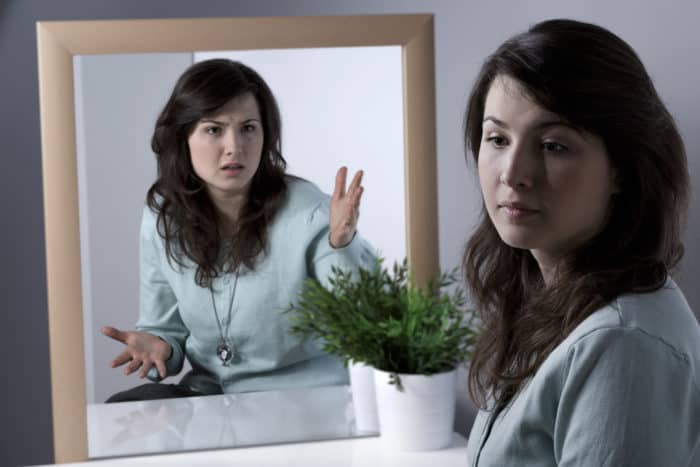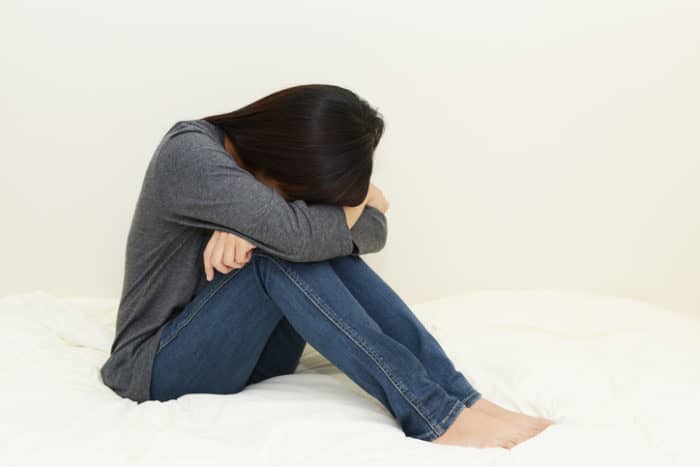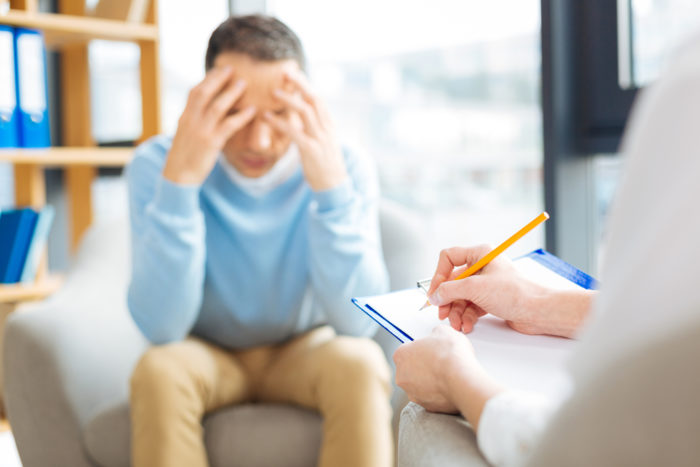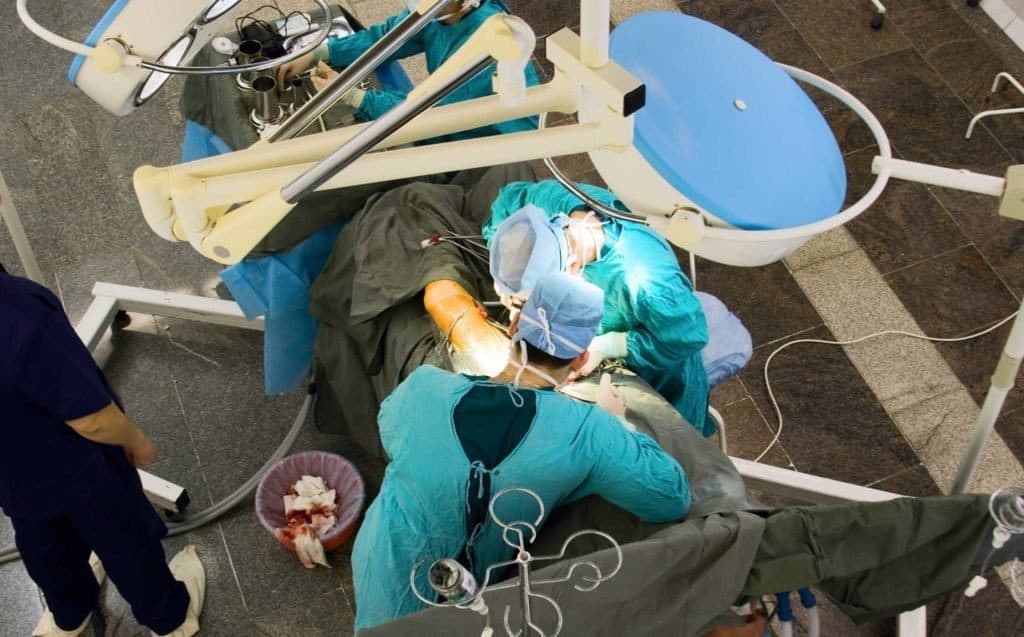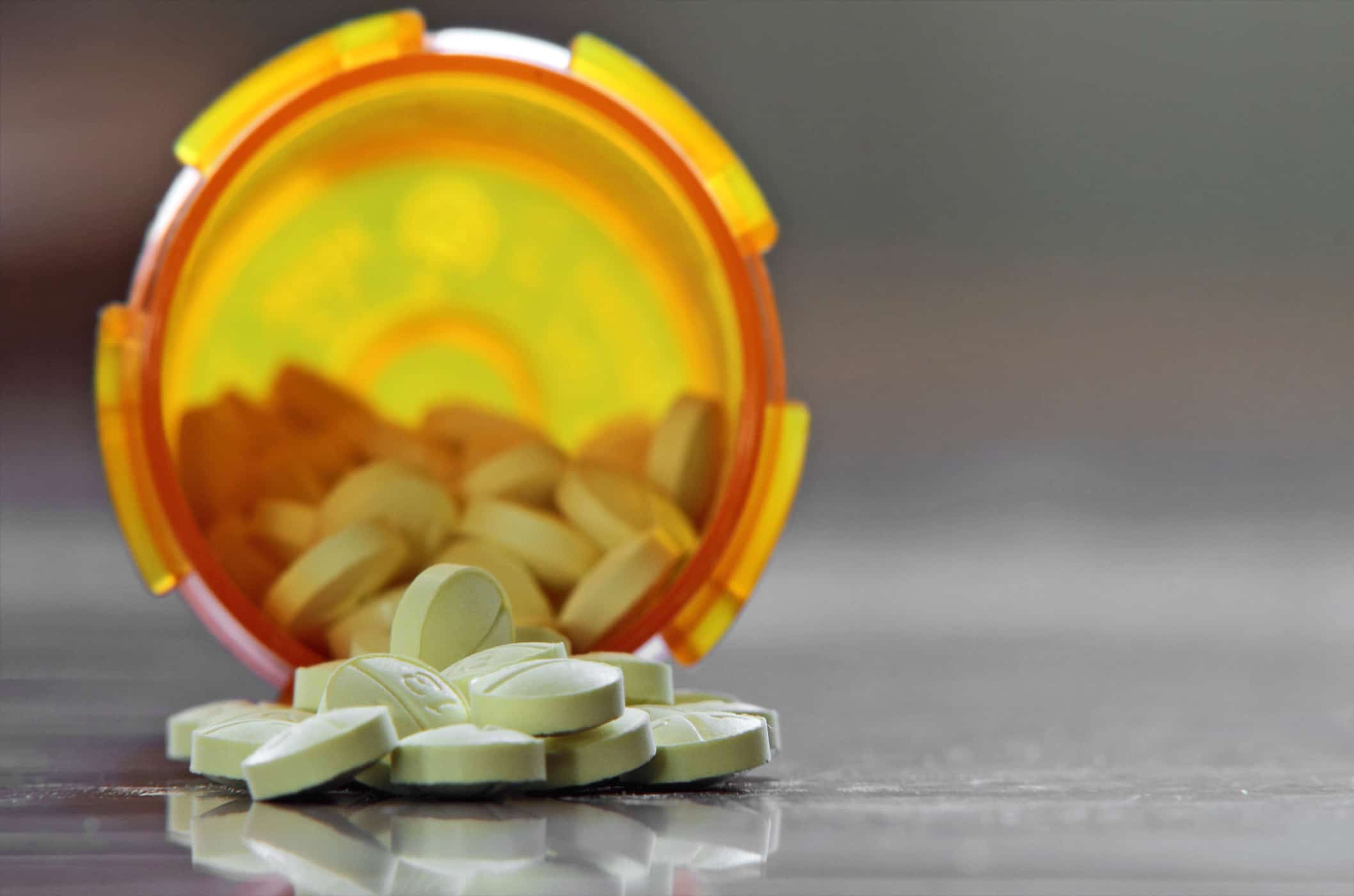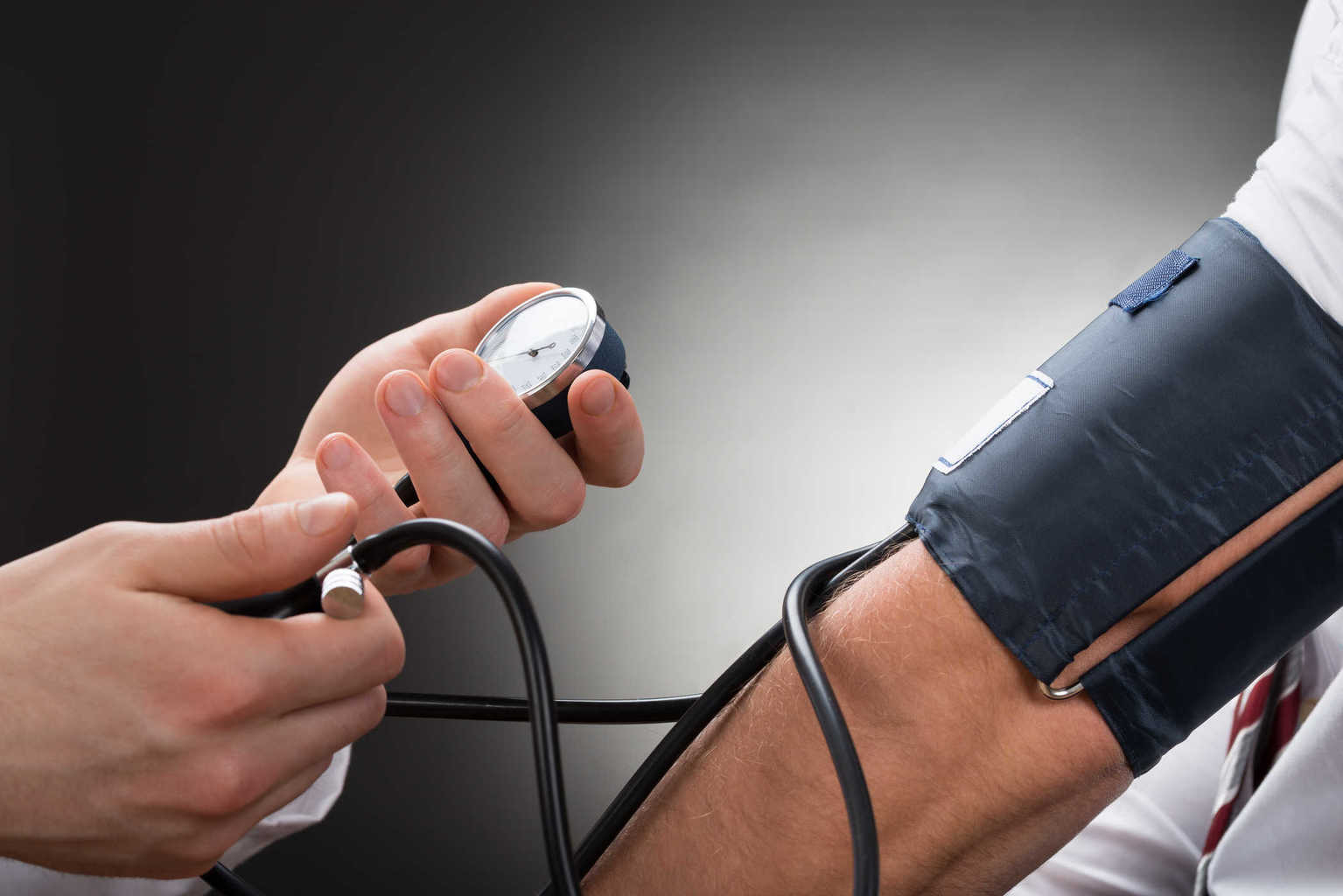Contents:
- Medical Video: Bipolar Disorder - What You Need To Know
- What is bipolar disorder?
- What are the signs of bipolar disorder?
- Is this mental condition an infectious disease?
- What causes this condition to occur?
- I experience the above symptoms. Am I having bipolar disorder?
- What is the difference between depression and bipolar disorder?
- 1. The causes of depression and bipolar disorder are totally different
- 2. Depression causes sadness to continue, bipolar causes a person to feel happy and sad
- 3, Different diseases, also different symptoms caused
- 4. Different depression and bipolar can be seen from the medicine
- Tips for staying or connecting with people who experience this condition
- 1. Find out about the disease
- 2. Find out the triggers for the symptoms and try to avoid them
- 3. Show unconditional love and affection
- 4. Don't forget to find support for yourself
- 5. Keep yourself healthy
Medical Video: Bipolar Disorder - What You Need To Know
Humans have various emotions and feelings such as feeling happy, sad, happy, and moody. We will feel happy when responding to something pleasant, but after a while, those feelings will disappear or subside. We can feel sadness, but it will still disappear after some time. Human feelings come and go depending on the atmosphere.
But not with people who have bipolar disorder. People with this mental condition, their moods can change in an atmosphere. Suddenly happy, then another fraction of a second can be very sad regardless of atmosphere. What is bipolar? Peel thoroughly the explanation here.
What is bipolar disorder?
Bipolar disorder or also known as bipolar disorder is a mental condition that causes changes mood extreme. This makes people who have this disorder can suddenly change feelings from very happy (mania) to be very sad (depression). Often, between changes in both, the patient continues to experience normal mood conditions.
When the patient feels sad, he will feel depressed, lose hope, and can even lose the desire to do daily activities. But when feeling happy, patients will feel very excited and full of passion. These mood changes can occur several times a year. This mental condition can cause damage to personal relationships, low motivation and productivity in the workplace, and worse can cause feelings of wanting to do suicide. Therefore, people with bipolar disorder are strongly advised to contact medical assistance when experiencing significant mood changes
What are the signs of bipolar disorder?
Based on the understanding of The American Psychiatric Association's Diagnostic and Statistical Manual (DSM) IV, bipolar disorder can be divided into two, namely Bipolar I and II disorders.
Bipolar I or classic type is characterized by 2 episodes of mania and depression. Bipolar II disorder is characterized by hypomania and depression. Apart from these two types of mental conditions, there are still more so-called cyclotemics.
The behavior of mania and hypomania is a condition of thoughts, feelings, and behavior that shows an expression of excessive joy. For example, people with this condition feel a lot of ideas, the smartest, to solve problems, which then creates positive thoughts in the form of excessive feelings of happiness, behavior is too happy, and stands out. At the level of hypomania behavior, people with bipolar disorder can still control themselves, while those who behave mania cannot control themselves. The mania phase is experienced for 2 weeks to 4-5 months (on average around 4 months)
Meanwhile, depression behavior is a condition of negative thoughts, despair, and no ideas. People with depression are overwhelmed by feelings of sadness, lack of enthusiasm, tend to behave quietly, lazy, and do not want to socialize with their environment. Even sometimes at a very high level of depression, there is a feeling of suicide. The depression phase is experienced longer than the mania phase which is around 6 months, but in older people it can be experienced more than a year.
Here are the characteristics of people who have bipolar:
During episodes of mania, several other features and symptoms that can arise include:
- Feeling too happy and excited.
- Very sensitive and easily offended.
- Eat a lot.
- Does not feel sleepy because it feels very energetic
- Be careless and carry out risky activities.
- Speak very quickly and change the topic of conversation from one topic to another.
- Decreased ability to make judgments or make a decision.
- You can also see strange things and hear mysterious sounds.
Whereas, in depressive episodes there are several signs and symptoms of this mental disorder:
- Feel very sad and lose hope in the long term.
- Loss of interest in doing daily activities.
- Appetite decreases
- Feel sleepy and lazy.
- Feeling too self-conscious and inferior.
- Difficult to concentrate.
- Have thoughts for suicide.
Is this mental condition an infectious disease?
Bipolar is not an infectious disease because there are no agents that are the cause (etiology) such as bacteria, germs, viruses, and so on. In the world of psychiatry, even though the affected organ is the brain, one or several agents cannot be appointed. Thus, the occurrence of mental disorders cannot be transmitted from one individual to another.
What causes this condition to occur?
There are various factors that cause a person to suffer from bipolar disorder, namely:
- Biological factor
The presence of a disorder is caused by an abnormality in a chemical substance in the brain's nerve cells. This imbalance is shown, among others, by the patient's response to drugs that work on the nervous system.
- Genetic factors
Individuals whose parents suffer from this mental condition have a 15-30% risk of also suffering from bipolar disorder. If both parents suffer from bipolar disorder, it's likely 50-75% of their children will suffer from this condition. In identical twins, the risk of 33-90% of twins will suffer too. As many as 10-15% of families of patients with bipolar disorder have experienced an episode of mood disorder.
- Psychosocial factors
Events in a stressful life will cause changes in biology in the brain and changes in nerve signals. Information experienced will be stored in the brain which will be called back on one event that evokes memory. The memory process occurs even though nothing comes from outside that triggers it.
I experience the above symptoms. Am I having bipolar disorder?
A person can detect himself experiencing mental disorders only in the initial detection stage. However, diagnosis can only be made by professionals such as psychiatrists. In addition to medical diagnosis, other professions related to mental health also have their own diagnosis or naming.
Diagnosis is based on existing criteria by conducting clinical examinations, signs and symptoms through observations, interviews with patients or other people closest to them such as parents, children, husband / wife, friends, and others. The patient will be asked to tell the story and the psychiatrist will ask relevant questions about the thing described.
What is the difference between depression and bipolar disorder?
To find out more about what different depression and bipolar disorder are, here are some things you can pay attention to:
1. The causes of depression and bipolar disorder are totally different
Although until now researchers have not found out exactly what causes bipolar disorder, they believe that genetic factors play a more important role in causing bipolar disorder. Two chemicals in the brain, serotonin and norepinephrine, fall apart in someone who has bipolar disorder. While depression is more influenced by various things, ranging from genetic factors, hormonal changes, the use of drugs, to chronic stress.
2. Depression causes sadness to continue, bipolar causes a person to feel happy and sad
Bipolar disorder causes a person to experience two different phases, namely the phase of 'mania' and 'depression' which can appear alternately. These mood changes can occur drastically, and often appear not in accordance with the conditions that are happening. For example, when you are having a hangout with friends, bipolar people feel sad without cause.
When someone is in the phase of 'mania' then someone will be at the top mood, very excited, unable to sleep, talk more than usual, talk very fast, easily distracted concentration, and think short term without thinking of the consequences. Phase ’'mania'’ usually lasts 7 days. Between the phases of 'mania' and 'depression', there is a phase of 'psychosis' which is a condition where a person will feel alien to his world and hallucinate - or have unreasonable ideas. While when a bipolar is in the 'depression' phase, he tends to experience the same symptoms as people who are depressed.
Usually, a person can develop a tendency for this mental condition in the age of teens to 30s.
3, Different diseases, also different symptoms caused
Different depression and bipolar disorder are often difficult to make a formal diagnosis because these two mental disorders often show the same symptoms. However, there are a number of things that can be a differentiator to determine the diagnosis of whether a person has depression or bipolar disorder. Basically, people with bipolar disorder will experience an episode of mania. But not so in people with depression.
Depression can be characterized by physical symptoms such as the appearance of real pain in the body (whether it can be explained or not), emergence of feelings of sadness / anxiety, despair, anger, loss of interest in something or loss of interest in interacting with the environment, loss of appetite , difficulty sleeping or insomnia, difficulty concentrating, making decisions, remembering, hallucinations, and the appearance of thoughts for hurt yourself.
While traits of people who suffer from disorders this can be observed with a tendency to hurt themselves, a mood that is unstable or changes drastically, and is more sensitive to something.
4. Different depression and bipolar can be seen from the medicine
Different from depression and bipolar, the treatment is also different. Depression can be short-lived, and in cases of prolonged clinical depression, treatment options include counseling CBT with a psychotherapist or using a prescription antidepressant medication. Whereas people with bipolar disorder will usually get a more intense treatment, because bipolar is a condition that can last a lifetime and is more complex depending on the severity of the phase it experiences.
Tips for staying or connecting with people who experience this condition
A bipolar partner does not mean that your relationship is the root of the problem. If bipolar disorder is a thorn in the relationship, it's time for you to act for your partner and yourself.
1. Find out about the disease
Just like other mental disorders, bipolar disorder can be treated and cured by treatment and therapy. To support the therapy, you must first understand and understand the conditions suffered by your partner.
Bipolar disorder is often interpreted as a form of a person's character defects. In fact, bipolar disorder is a mental disorder caused by biological factors that are beyond the person's control. Some risk factors for bipolar disorder include genetic (hereditary) and abnormal brain function.
2. Find out the triggers for the symptoms and try to avoid them
Symptoms of bipolar disorder can be triggered by something. Symptoms can occur slowly, almost imperceptibly. Therefore, find out and learn what can make it relapse and try to avoid it. Also study your partner's heart situation to try to prevent the depression phase that can come at any time.
You are the one who knows your partner the most inside out. If you notice that your partner's behavior, emotional upsurge, or mindset is not as usual, ask yourself if this could be a pattern of bipolar symptoms. By observing your partner's behavior, this can also strengthen yourself and not be surprised when his mood changes quickly.
3. Show unconditional love and affection
Accept the fact that your partner is sick. Understand also because of this illness, he may not always be someone who is always full of love and affection.
But your sincere love has the power to heal. If your partner is experiencing a depressive phase, tell them that you care about showing more love. It might be more difficult to do this when they are relapsing and venting their negativity on you, but it is precisely at this time that they desperately need love and affection.
Allowing depressed people to sink before offering help is totally wrong. Severe depression will be more difficult to handle, easier to relapse, and will spread more thorns in your relationship in the future. Waiting also increases the likelihood that your relationship will not last; the presence of depression in a relationship increases the risk of separation by nine times.
4. Don't forget to find support for yourself
Staying with a bipolar partner will keep you focused on the condition. However, don't let yourself forget about your health condition. You can join a support group of family members of bipolar patients who can help and strengthen you against your partner. Support and understanding from family or other friends can also help you stand up and go through this with your partner.
5. Keep yourself healthy
If you have a bipolar partner, without realizing it will make your health neglected. Researchers at Yale University School of Medicine also found that nearly a third of people living with bipolar people were very vulnerable to suffering from depression and anxiety disorders.
Therefore, be aware of symptoms of depression in yourself, especially fatigue, headaches, and persistent nausea. Immediately consult with your doctor to find the right treatment and medication for you.


